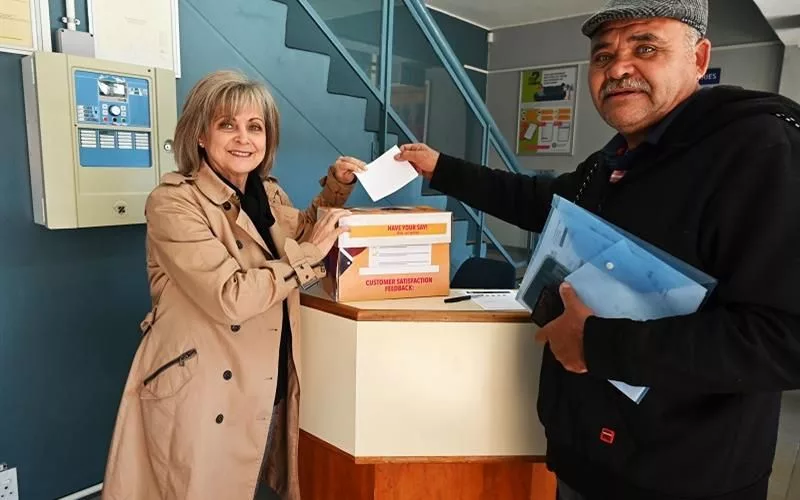South Africa’s Minister of Sport, Arts, and Culture, Gayton McKenzie, is promoting transparency through social media and an open dialogue with the public. He recently publicized a list of Covid-19 relief programme beneficiaries and exposed irregularities, such as potential misuse of funds and individuals who did not apply for or receive money being listed as beneficiaries. McKenzie has also discontinued trips for super fans and redirected the funds to support struggling artists and athletes. His candid approach demonstrates a dedication to fair distribution of resources and has sparked a new conversation about public sector transparency and accountability in South Africa.
How is South Africa’s Minister of Sport, Arts, and Culture promoting transparency?
Gayton McKenzie is using social media to create an open and transparent dialogue with the public, exemplified by the publicized list of Covid-19 relief programme beneficiaries. He is committed to exposing those who exploit the system for self-benefit and redirecting funds where they are needed most, discontinuing trips for super fans and ensuring fair distribution of resources. McKenzie’s candid approach reflects a change in attitudes towards transparency and accountability within the public sector.
Gayton McKenzie, South Africa’s Minister of Sport, Arts, and Culture, has risen as a dynamic force since he assumed office in June. He has proficiently used the power of social media to create an open and transparent dialogue with the public, gaining him a reputation as a trailblazer among many South Africans.
Last Wednesday, in line with his commitment to transparency, McKenzie’s department publicized a list of artists and sportspeople who were beneficiaries of the Covid-19 relief programme. This act caused a stir, as the Sunday Times insinuated that McKenzie might be resorting to such tactics out of a desperate bid for popularity. In response, the leader of the Patriotic Alliance (PA) retorted stating that his detractors who expected the worst would be sorely disappointed.
“The ones preparing to crown me ‘Mampara of the Year’ are in for a surprise. I’m here to deliver and improve things for the artists, creatives, and sportspeople,” McKenzie confidently asserted on platform X.
Investigation of Beneficiary List
Through a thorough examination of the benefactor list, McKenzie exemplified his commitment to transparency. He pointed out irregularities and raised concerns about potential misuse of funds. He uncovered cases where individuals who hadn’t applied for or received money were nevertheless listed as beneficiaries. Further, he disclosed that some listed beneficiaries were either not South African or had no connection to the arts sector.
McKenzie, resolute in his stance, stated, “Our determination remains unyielding. This is not personal wealth; this is public funding, and the public deserves to know who benefits from their contributions.” He affirmed that the Department of Sport, Arts, and Culture has a responsibility to support artists during challenging times, and he pledged to expose those who exploited the system for self-benefit.
Redirecting Resources
In a testament to his commitment to artists and athletes, McKenzie also announced the discontinuation of trips for super fans. He argued that sponsoring fans was unjustifiable when artists and athletes were struggling to procure funds to attend sporting events and exhibitions. Redirecting these finances to where they were needed most would, in his view, ensure a fairer distribution of resources.
“I have halted all trips for super fans,” he announced, “We have artists and athletes finding it difficult to raise money for attending sporting events and exhibitions; how can we justify spending for fans’ pleasure? We will discontinue funding these trips and redirect that money to where it’s most needed.”
McKenzie’s candid approach demonstrates a steadfast dedication to transparency, fair distribution of resources, and the promotion of the Sport, Arts, and Culture sector in South Africa. His tenure has sparked a new conversation about the management of public funds and the provision of support for artists and athletes.
While it is yet to be seen if this contributes to a positive transformation in his department, one thing is clear: McKenzie has initiated a dialogue that has the potential to significantly influence the Sport, Arts, and Culture landscape in South Africa. His actions reflect a change in attitudes towards transparency and accountability within the public sector, and it is this conversation that could potentially lead to lasting reform in the sector.
What is Gayton McKenzie’s stance on fair distribution of resources?
Gayton McKenzie is committed to fair distribution of resources within the Sport, Arts, and Culture sector in South Africa. He has demonstrated this through his candid approach to exposing irregularities in the Covid-19 relief programme beneficiary list and redirecting funds from super fan trips to support struggling artists and athletes. McKenzie believes that the public deserves to know who benefits from their contributions and is determined to ensure that public funding is not exploited for self-benefit.
How has Gayton McKenzie used social media to promote transparency?
Gayton McKenzie has used social media to create an open and transparent dialogue with the public, exemplified by publicizing the list of Covid-19 relief programme beneficiaries. He has also been vocal about his commitment to exposing those who exploit the system for self-benefit and redirecting funds where they are needed most. McKenzie’s use of social media reflects a change in attitudes towards transparency and accountability within the public sector.
Why did Gayton McKenzie publicize the list of Covid-19 relief programme beneficiaries?
Gayton McKenzie publicized the list of Covid-19 relief programme beneficiaries to demonstrate his commitment to transparency and fair distribution of resources within the Sport, Arts, and Culture sector in South Africa. Through a thorough examination of the list, he was able to expose irregularities and raise concerns about potential misuse of funds. McKenzie believes that the public deserves to know who benefits from their contributions and is determined to ensure that public funding is not exploited for self-benefit.
What irregularities did Gayton McKenzie uncover in the Covid-19 relief programme beneficiary list?
Through a thorough examination of the Covid-19 relief programme beneficiary list, Gayton McKenzie uncovered irregularities such as potential misuse of funds and individuals who did not apply for or receive money being listed as beneficiaries. He also disclosed that some listed beneficiaries were either not South African or had no connection to the arts sector. McKenzie is committed to exposing those who exploit the system for self-benefit and redirecting funds where they are needed most.
How has Gayton McKenzie redirected funds to support struggling artists and athletes?
Gayton McKenzie has redirected funds to support struggling artists and athletes by discontinuing trips for super fans and redirecting the funds to where they are needed most. He believes that sponsoring fans is unjustifiable when artists and athletes are struggling to procure funds to attend sporting events and exhibitions. McKenzie is committed to fair distribution of resources within the Sport, Arts, and Culture sector in South Africa.
What impact has Gayton McKenzie’s tenure had on the Sport, Arts, and Culture sector in South Africa?
Gayton McKenzie’s tenure has sparked a new conversation about public sector transparency and accountability within the Sport, Arts, and Culture sector in South Africa. His candid approach to exposing irregularities in the Covid-19 relief programme beneficiary list and redirecting funds to support struggling artists and athletes reflects a change in attitudes towards transparency and fair distribution of resources within the public sector. McKenzie’s actions have the potential to significantly influence the Sport, Arts, and Culture landscape in South Africa and could potentially lead to lasting reform in the sector.












